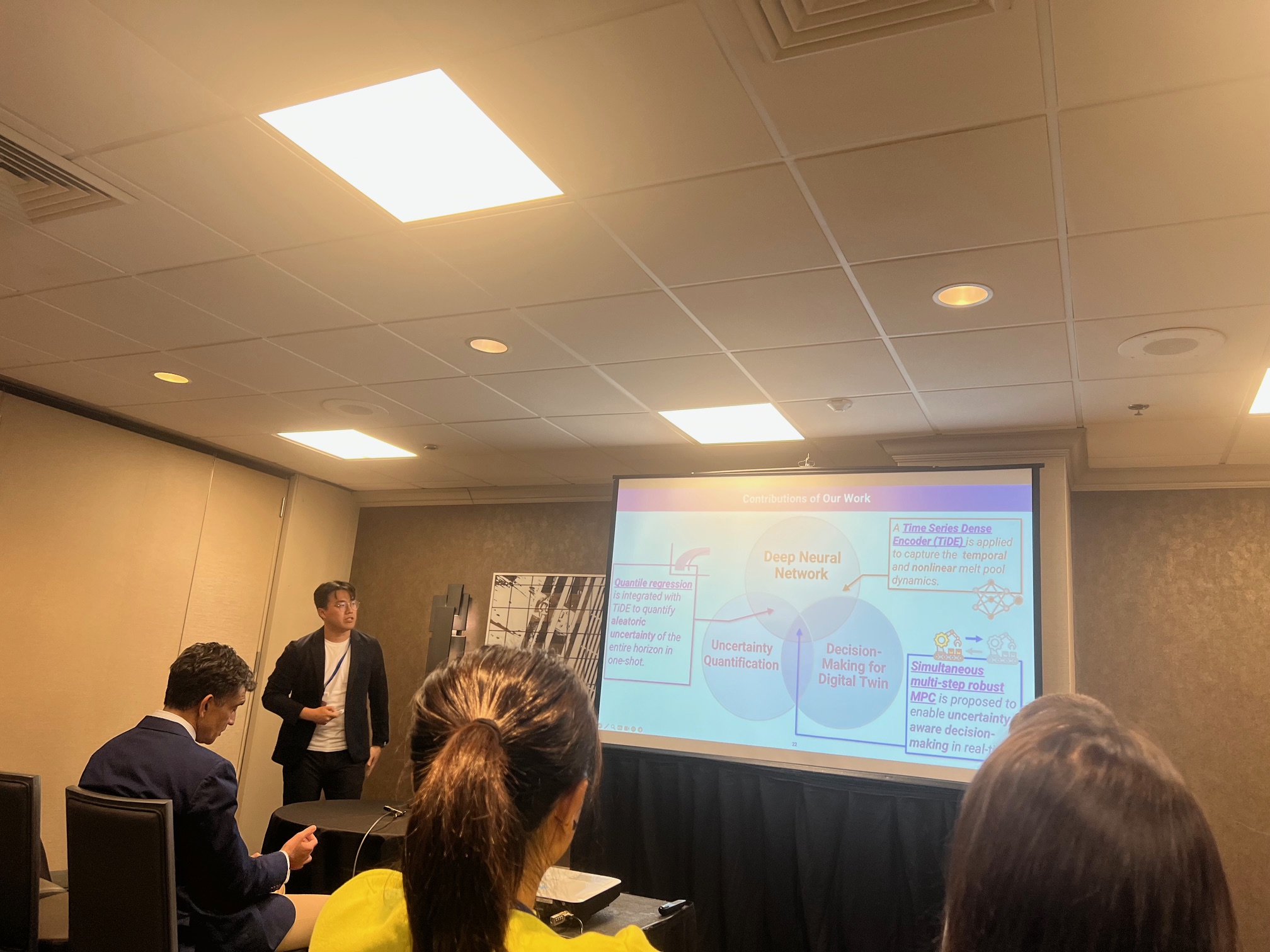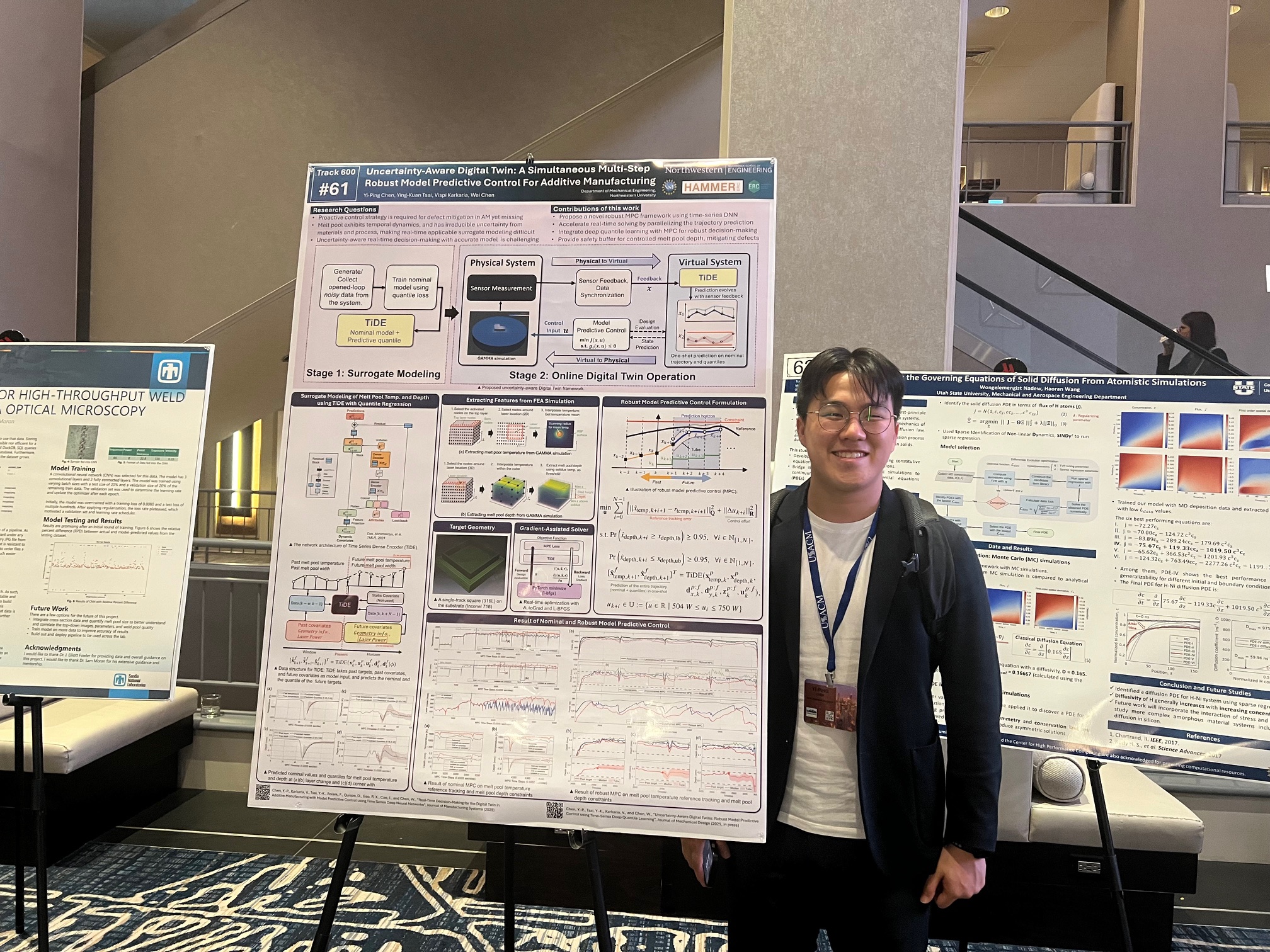Uncertainty-Aware Digital Twin: a Simultaneous Multistep Robust Model Predictive Control for Additive Manufacturing
Date:


The increasing adoption of autonomous manufacturing underscores the need for efficient, adaptive, and precise control strategies to meet stringent quality demands under dynamic and uncertain conditions. Digital Twins (DTs) have emerged as a transformative solution, providing a dynamic, real-time interplay between physical systems and their virtual counterparts. However, realizing the full potential of DTs requires addressing key challenges: (1) accurate modeling of nonlinear, multivariate system dynamics for robust prediction and (2) rapid decision-making under operational constraints and uncertainties to support real-time control.
This work introduces a simultaneous multi-step robust model predictive control (MPC) framework integrating the surrogate modeling of complex dynamical systems, uncertainty quantification, and robust decision-making as a DT designed for Directed Energy Deposition additive manufacturing. At the core of this framework lies a multivariate time series deep neural network called the Time Series Dense Encoder (TiDE). This surrogate model accurately predicts critical process states, including melt pool temperature and depth, across a wide range of prediction horizons. Further, deep quantile learning is integrated with TiDE to enable efficient and flexible uncertainty quantification (UQ) in a multi-step-ahead prediction manner. The TiDE surrogate model assimilates data streams from the physical system to dynamically update the state predictions of DT.
To achieve optimal control, the TiDE model is seamlessly embedded into a simultaneous multi-step robust MPC algorithm proposed in this work. This integration enables the DT to improve fabricated part quality by tracking the melt pool temperatures while enforcing process constraints such as maintaining desired melt pool depths within a certain range. Verified through a GPU-accelerated part-scale finite element analysis (FEA) simulations, this approach demonstrates superior performance compared to conventional Proportional-Integral-Derivative (PID) controllers, offering smoother control inputs and enhanced constraint satisfaction under dynamically uncertain conditions. Notably, the robust MPC framework adapts effectively to disturbances, leveraging uncertainty-aware optimization to improve resilience and reliability.
This work addresses fundamental challenges in DT development by combining efficient data assimilation, surrogate modeling, uncertainty quantification, and robust optimal control methodologies. It highlights the importance of integrating machine learning techniques with advanced control algorithms to empower DTs for autonomous decision-making. The proposed framework exemplifies the practical utility of DTs in complex manufacturing systems, contributing to the broader goals of optimal control, UQ, and real-time decision support in modern industry.
